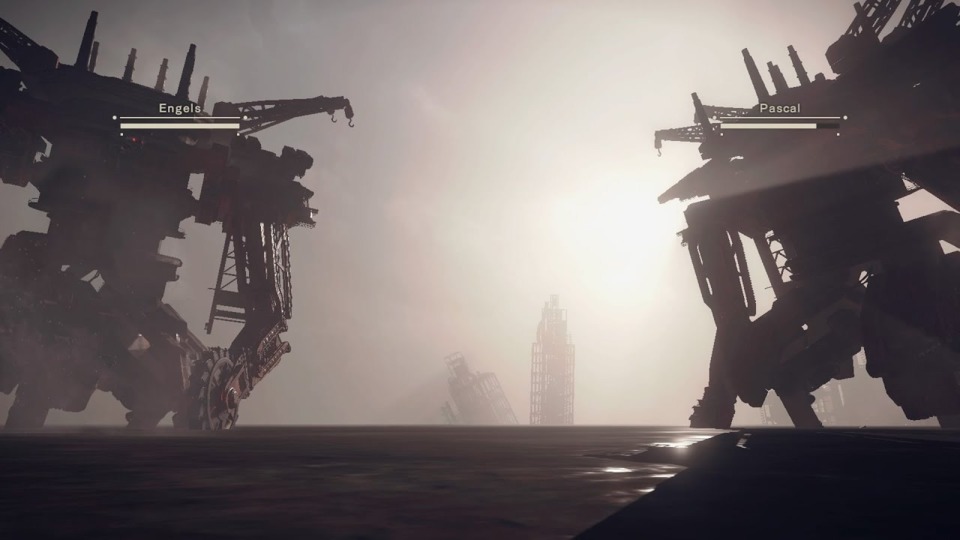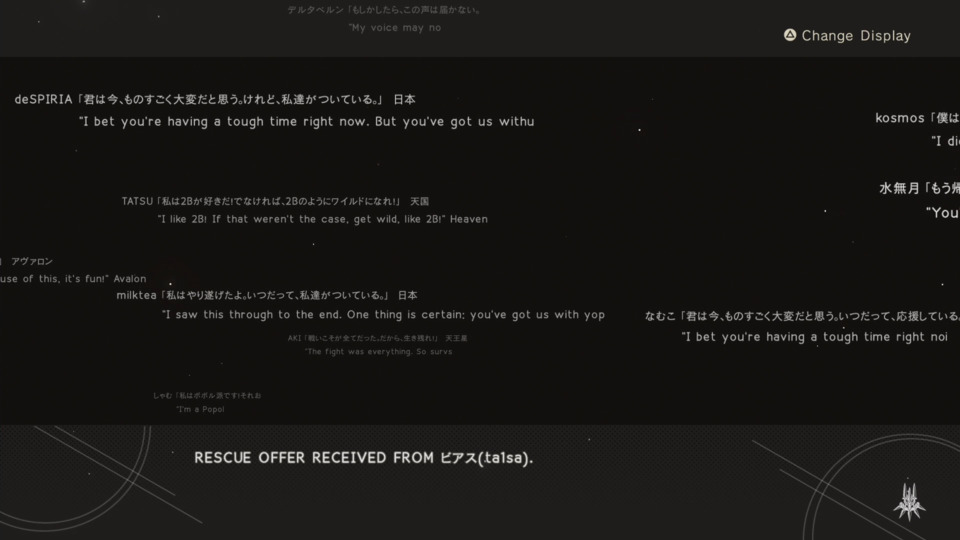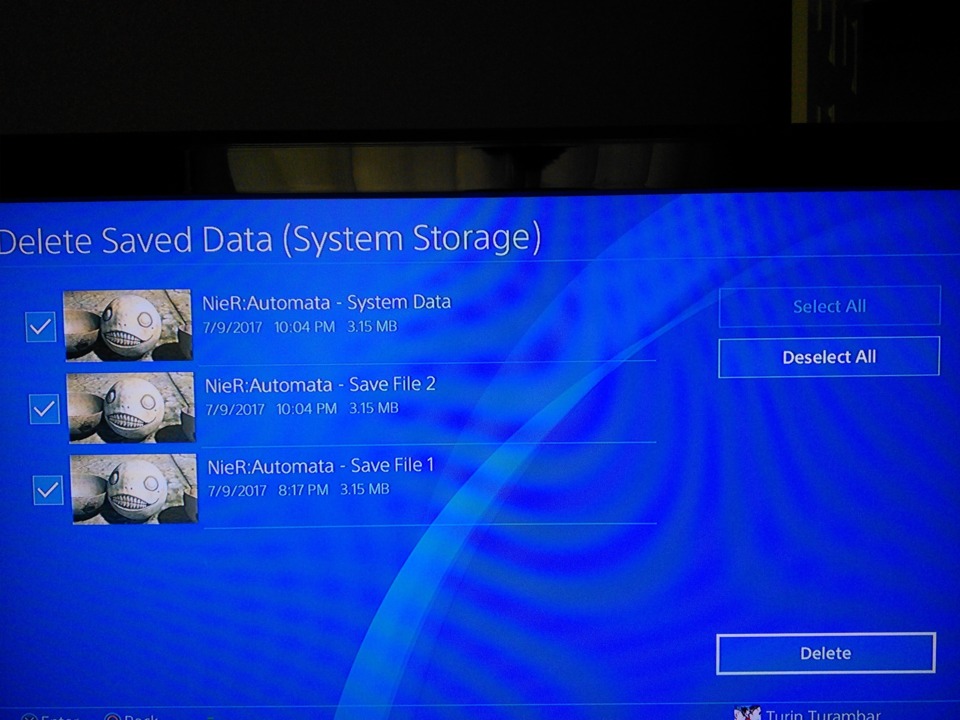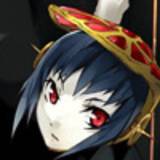The Peaks and Valleys of Player Empowerment in NieR Automata's Ending E (spoilers)
By Turambar 7 Comments
There are many moments during the course of NieR Automata where the game removes or reduces your control over your character to make you feel weak. However, there are also several moments when the game builds you up in power, and as opposed to tearing you down afterwards, makes you feel weak and like a failure even during the fact. Pascal's hijacking of an Engles robot is bittersweet as it signals the abandonment of all of Pascal's past ideals of creating a peaceful, pacifist society for robots. His need to wield that power is an admission of failure. Giving us control over his final rampage, we feel powerful, but also conflicted and worried.

This balance between simultaneously providing weakness and power extends to the final ending of the game as well.
For the few who have not heard about this ending, it's this in a nutshell: you, the player, are requested by in game characters to protect the data of the androids you have spent tens of hours playing from deletion by destroying the gods of this system, presented as the game credits themselves, via a top down shooter identical to the game's hacking mini-game. You try repeatedly, doomed to failure in the face of overwhelming odds, all the while messages from around the world (you can see their location of origin) attempt to encourage you, and then offer you aid in the form of multiple ships that surrounds your original, sextupling your offensive power and providing you with an invulnerable shield. You proceed to destroy the remainder of the credits and see the ending.
While it seems mechanically simple as a sequence, much like our control of Pascal/Engles, it is one filled with peaks and valleys, feelings of strength and vulnerability. Our first peak comes at the start: the names scrolling down are initially easily dispatched. Smaller names take only one shot, larger names take multiple and are more dangerous, but it is nothing the player can't handle. It gives the player some initial hope that killing god is doable. All the while, the stakes is threateningly ambiguous. What does the game mean by the deletion of 2B and 9S's data? Would you even have a chance to go back and fix things if you screw up? Turning the credits into a playable segment like this isn't a norm. It is not immediately clear if the normal rules of video games apply here.
After several deaths come the moment that many remembers this ending for: your sudden and extreme empowerment. However, this comes with a sudden new found vulnerability. The numerous messages of support displayed after each death helps you form a relationship with them: you take comfort in them. When those names now offer you aid and become your new strength, you take joy in them. Then you're hit, one of their data is deleted, and even without knowing what that actually meant mechanically, you worry about them. You're simultaneously invulnerable, and feeling a greater sense of danger than before. You don't want to be hit.

It's these ups and downs during this segment, feeling powerful but still despairing that you let someone down as you get hit and watching a helper's data's deletion that makes the final stroke so impactful. Deletion of save files is not something new. It existed in the original Nier as the price you paid to save the life of another character. It is different here however because not only is it being asked of you after the fact, it is being asked of you after you have felt the failure of saving others just moments earlier. It is not a moment of noble self sacrifice, but rather paying forward someone else's favor. Even in your most powerful moment, you screwed up, made mistakes, and feel a degree of obligation to sacrifice yourself for others just as others have sacrificed themselves for you.
And yet, we're still not done. Because not everyone will feel the impetus to sacrifice themselves at the moment. Whether it's because they have not completed the game to their satisfaction, or did not believe their self-sacrifice fit the game thematically (I fell into the latter camp), "no" is the choice many select. For those players, the thought of "what if I did sacrifice myself" is also always there. Some will go back on their chapter select and do it again, to maybe do the thing they couldn't the first time, and the game responds with a "no". The request for sacrifice is no longer there.
You're left to live with your regret over that save, perhaps deleting your save file as some bizarre form of recompense similar to the robot that committed suicide during the game itself.

